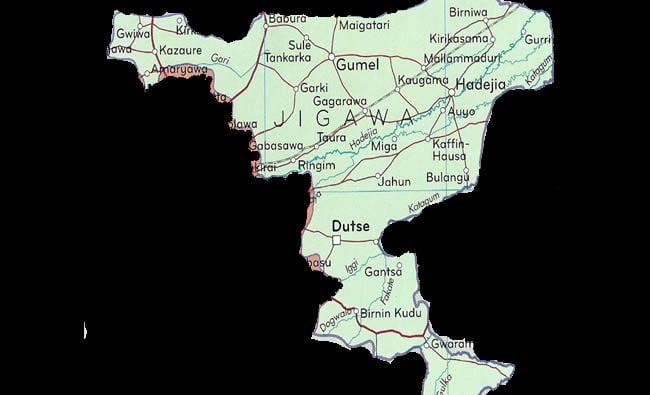The Hadejia Local Government Council in Jigawa State, Nigeria, has initiated the construction of a three-kilometer tunnel designed to alleviate the persistent flooding issues plaguing communities surrounding a large pond known as Jaribola. This ambitious project, estimated at a cost of N60 million, aims to channel excess water from the pond into the River Hadejia, providing a long-term solution to the annual flooding that has wreaked havoc on farmlands, markets, and the livelihoods of residents in the affected areas. Alhaji Ahmed Abba-Ari, the Chairman of the council, emphasized the project’s significance in protecting lives and property, underlining the council’s commitment to finding sustainable solutions to the recurring environmental challenge.
The construction of the tunnel represents a proactive approach to water management in the region. The tunnel, essentially an underground passageway, is expected to significantly reduce the impact of seasonal flooding by creating an alternative route for excess water. This intervention will not only protect the community from the immediate dangers of flooding but also contribute to the long-term preservation of valuable agricultural land and the stability of the local economy, which is heavily reliant on farming. The project also demonstrates the local government’s commitment to infrastructure development aimed at mitigating the effects of climate change and improving the overall quality of life for its citizens.
Alhaji Muhammad Ubale, the Head of the council’s Works Department, expressed confidence in the contractor’s ability to deliver the project according to the agreed-upon specifications and within the stipulated timeframe. This assurance underscores the council’s commitment to transparency and accountability in the execution of public projects. The council’s proactive engagement with the contractor and its emphasis on adherence to contractual obligations are crucial for ensuring the successful completion of the tunnel and the realization of its intended benefits for the community.
The recurring flooding in Hadejia and other parts of Jigawa State highlights the vulnerability of these communities to extreme weather events, likely exacerbated by climate change. Heavy rains and overflowing rivers have, in recent years, displaced thousands of residents, disrupted economic activities, and caused immense human suffering. The construction of the tunnel is, therefore, a crucial step towards building resilience and adapting to the changing climate. This infrastructure project serves as a tangible example of how local governments can take concrete steps to address the challenges posed by climate change and protect their communities from its devastating impacts.
The Jaribola tunnel project exemplifies a strategic approach to flood management, moving beyond reactive measures to implementing long-term solutions that address the root causes of the problem. By diverting excess water from the pond into the river, the tunnel will help regulate water levels and prevent the pond from overflowing during periods of heavy rainfall. This proactive approach not only mitigates the immediate risks of flooding but also contributes to the long-term sustainability of the local ecosystem. The project serves as a model for other flood-prone regions, demonstrating the effectiveness of engineering solutions in addressing the challenges posed by climate change and promoting community resilience.
The Hadejia Local Government Council’s investment in this infrastructure project demonstrates a commitment to the well-being of its citizens and the long-term development of the region. The tunnel project is not merely a response to a recurring problem; it represents a proactive step towards building a more resilient and sustainable future for the community. By tackling the root causes of flooding, the council is investing in the future of Hadejia, protecting lives and livelihoods, and ensuring that the community can thrive even in the face of environmental challenges. The successful completion of this project will serve as a testament to the power of local action in addressing global challenges like climate change and building a more sustainable future.














